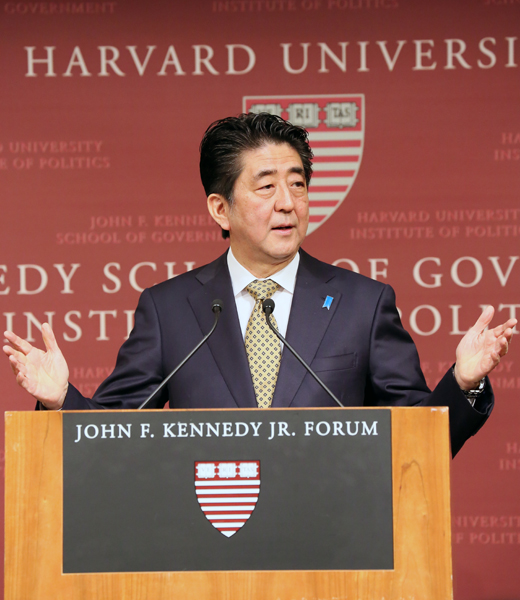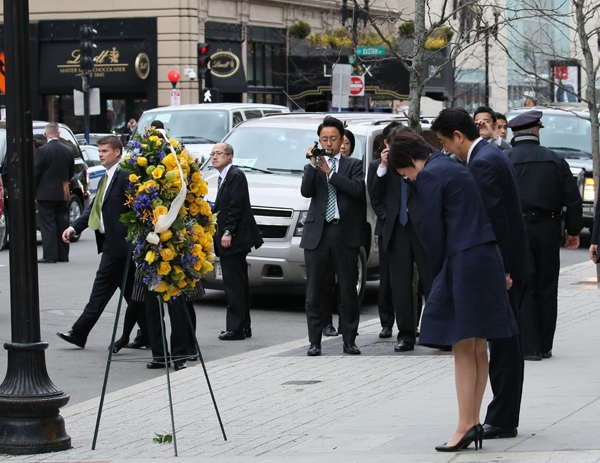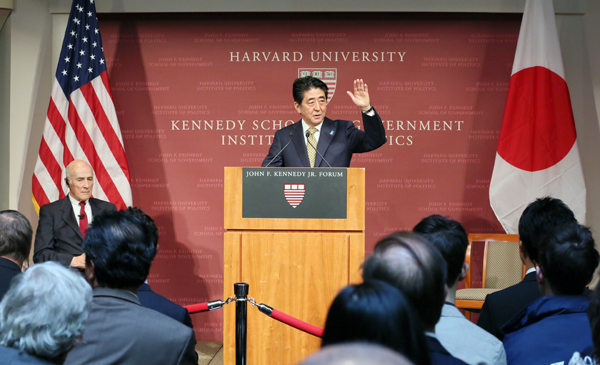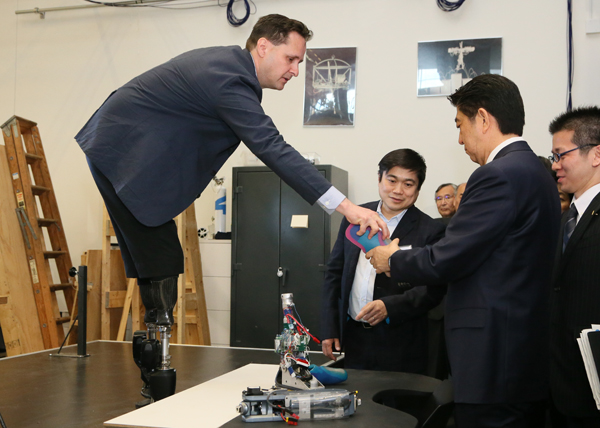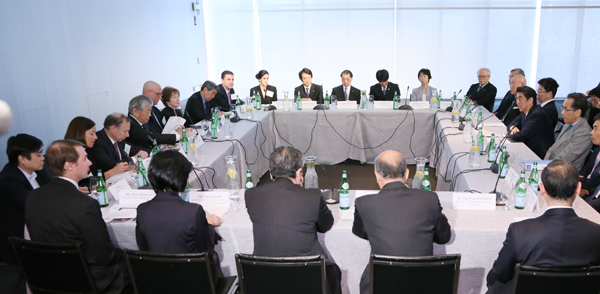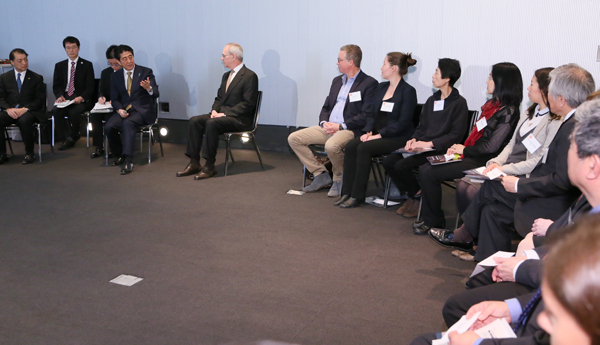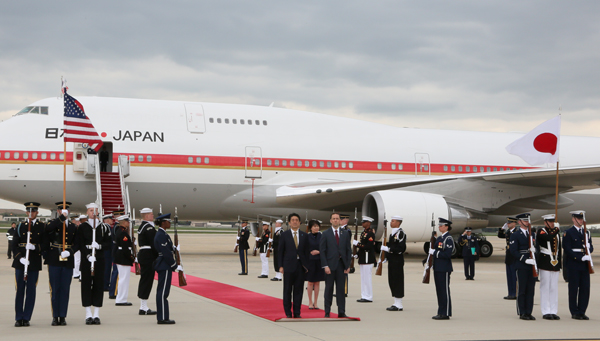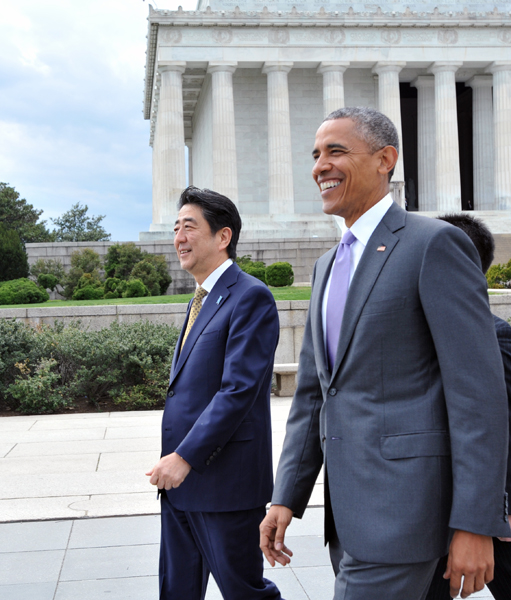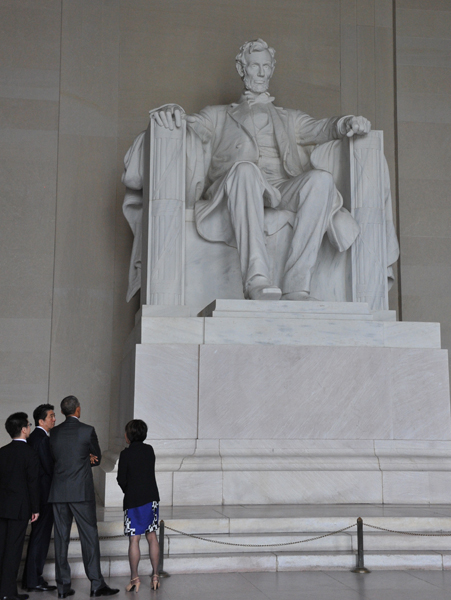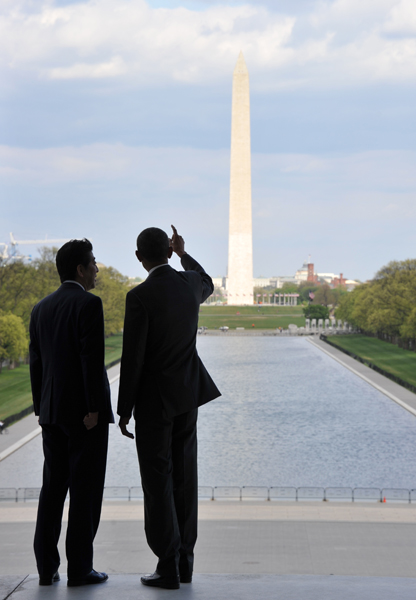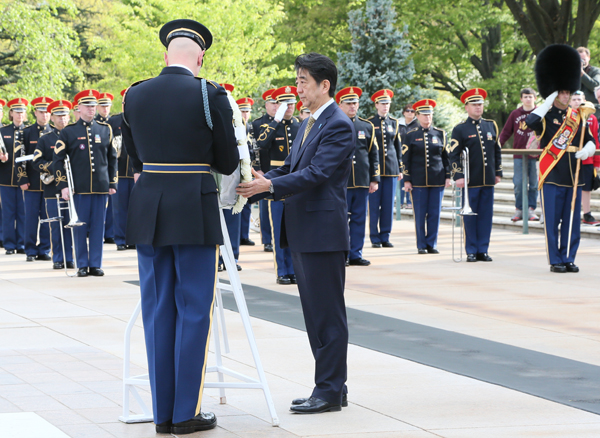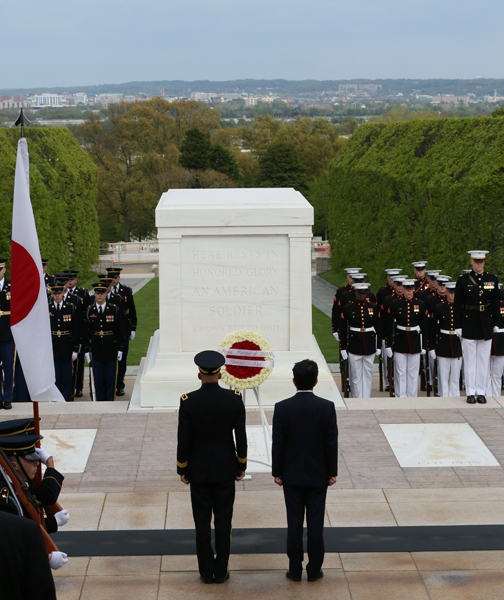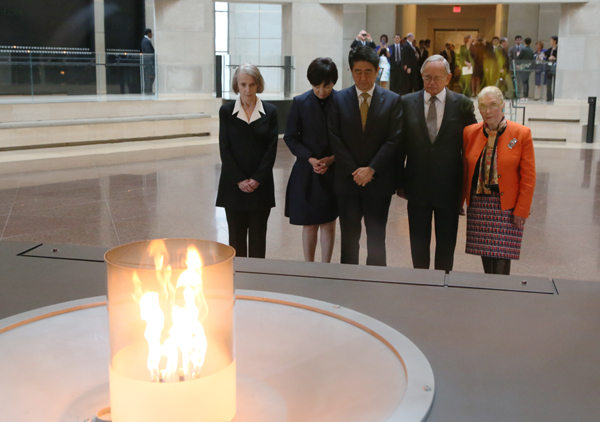Home > News > The Prime Minister in Action > April 2015 > Prime Minister's Visit to the United States: Second Day
The Prime Minister in Action
Prime Minister's Visit to the United States: Second Day
April 27, 2015
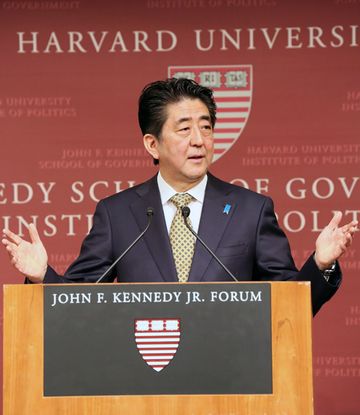
Photograph of the Prime Minister delivering a speech at Harvard Kennedy School (1)
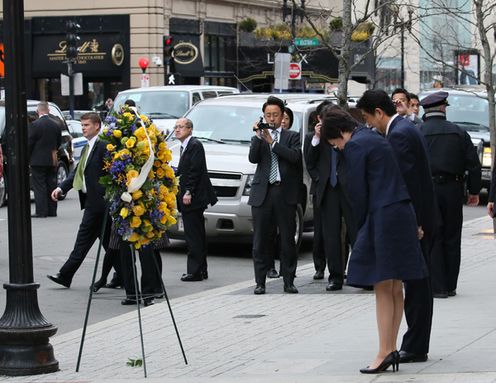
Photograph of the Prime Minister visiting the site of the Boston Marathon bombings
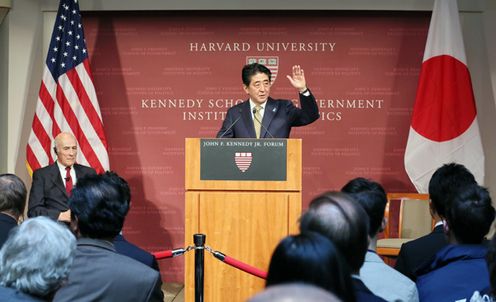
Photograph of the Prime Minister delivering a speech at Harvard Kennedy School (2)
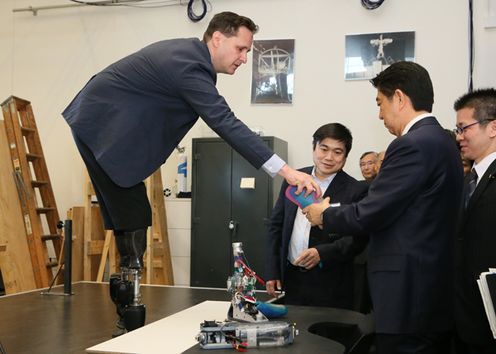
Photograph of the Prime Minister visiting MIT facilities (1)
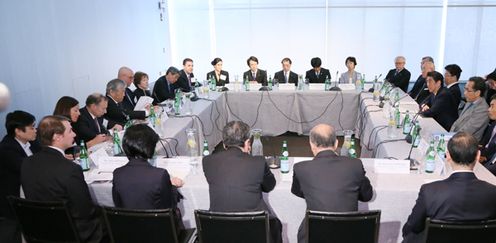
Photograph of the Prime Minister exchanging views with members of MIT
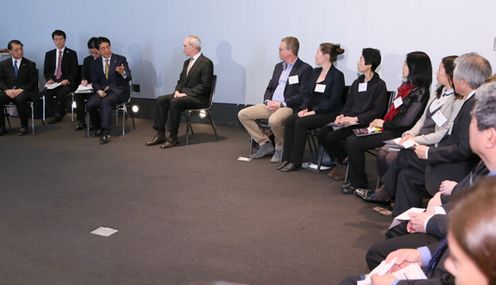
Photograph of the Prime Minister meeting with the President of MIT, Japanese researchers, and researchers in Japanese studies
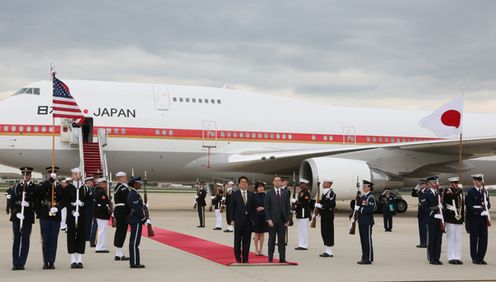
Photograph of the Prime Minister attending the arrival ceremony
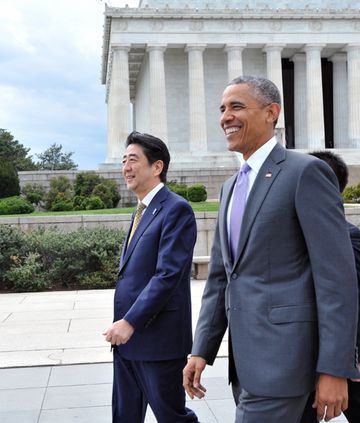
Photograph of the Prime Minister walking around Lincoln Memorial with President Obama
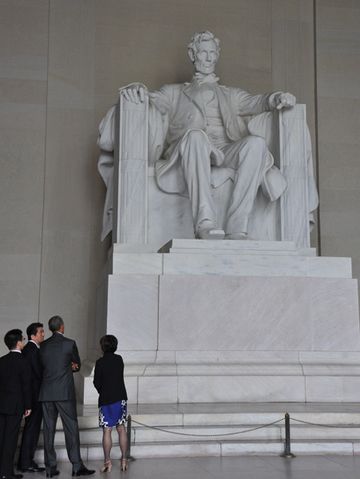
Photograph of the Prime Minister visiting Lincoln Memorial with President Obama (1)
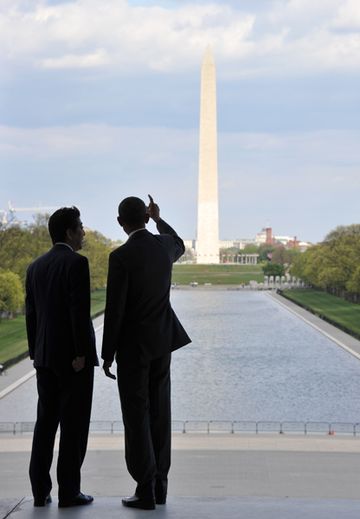
Photograph of the Prime Minister visiting Lincoln Memorial with President Obama (2)
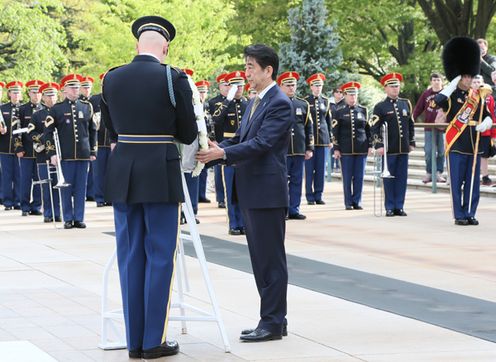
Photograph of the Prime Minister visiting Arlington National Cemetery (1)
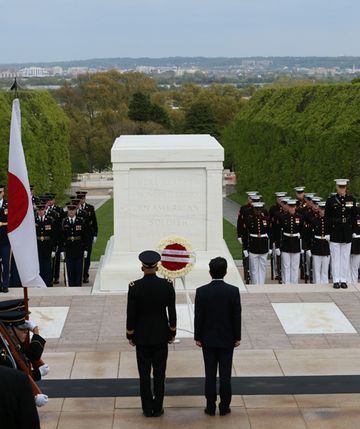
Photograph of the Prime Minister visiting Arlington National Cemetery (2)
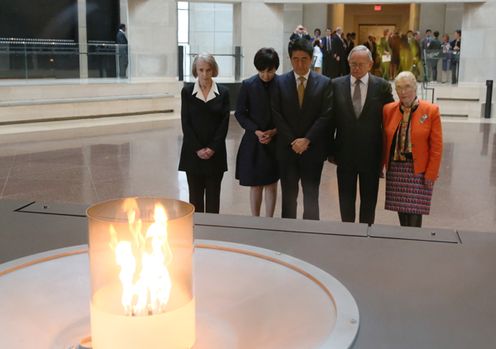
Photograph of the Prime Minister visiting the U.S. Holocaust Memorial Museum
[Provisional Translation]
On the morning of April 27 (local time), Prime Minister Shinzo Abe, during his visit to the United States of America, first visited the site of the Boston Marathon bombings, before visiting the John F. Kennedy School of Government at Harvard University and delivering a speech.
The Prime Minister then visited facilities belonging to the Massachusetts Institute of Technology (MIT) and exchanged views with members of the Institute. Following this, he met with Dr. L. Rafael Reif, President of MIT; Japanese researchers; and researchers in Japanese studies.
In the afternoon, Prime Minister Abe visited Washington D.C. and attended an arrival ceremony at Andrews Air Force Base. The Prime Minister then visited and walked around Lincoln Memorial guided by the Hon. Barack Obama, President of the United States of America.
Afterwards, the Prime Minister visited Arlington National Cemetery and the United States Holocaust Memorial Museum.
Following his visit the Prime Minister said,
“Visiting the United States Holocaust Memorial Museum on the 70th anniversary of the end of World War II and the 70th anniversary of the liberation of Auschwitz, I am filled with a sense of solemnity.
‘The Holocaust, never again.’ In Israel, I expressed my determination that we must never ever let the tragedies of the Holocaust be repeated. Upon seeing the Museum’s exhibitions today, this determination has grown even stronger.
Today, I also had a very special encounter that filled me anew with hope about the goodness of mankind. Today I was able to meet people whose lives were saved when Chiune Sugihara, a Japanese diplomat who served as a Consul in Lithuania, issued them with visas there. The courageous actions of one man saved the precious lives of thousands. Moreover, there are more than a few other Japanese people who also helped the Jewish refugees who headed to Japan with the visas Mr. Sugihara issued.
There is much that I hope we can learn from their courage. Furthermore, the existence of such Japanese people in turn fills me with pride as a fellow Japanese citizen.
I am filled with renewed resolve to keep such tragedies and also such acts of courage and goodness firmly embedded in our minds and not allow them to fade from our memory. Furthermore, I am determined anew that Japan must make ever more proactive contributions to the peace and stability of the world. Thank you.”

